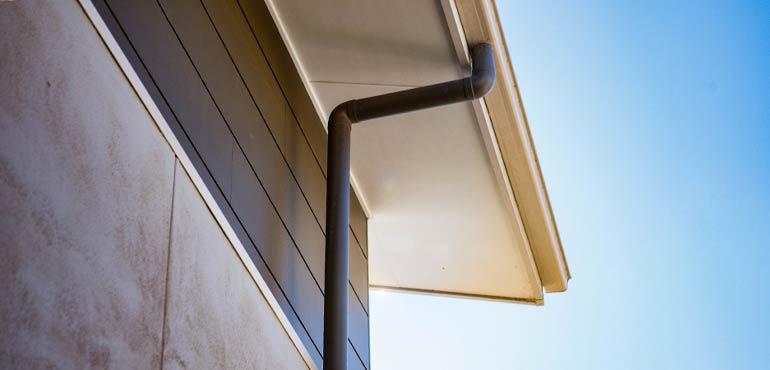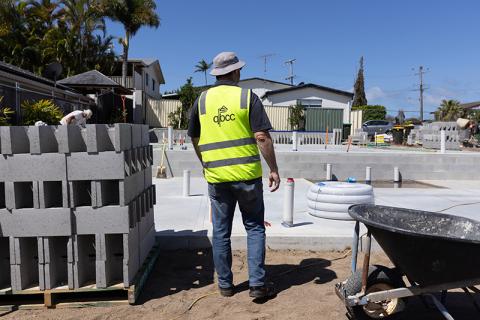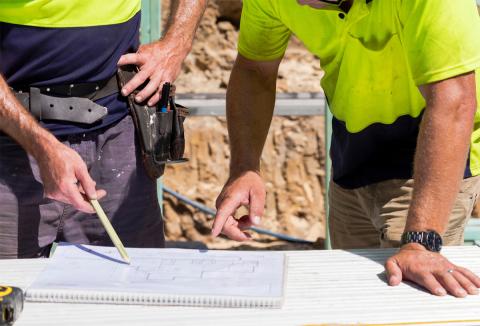Compliance activities targeting plumbing and drainage work
Plumbers and drainers protect public health and safety by ensuring the safe delivery of drinking water and removal of waste.
As the state’s regulator of the plumbing and drainage industry, the QBCC is dedicated to ensuring these high standards are maintained, and protecting the important work of plumbers now, and into the future.
Cracking down on unlicensed plumbing and drainage work is a key focus area, with unlicensed work making up 45% of all our plumbing-related investigations.
During our proactive plumbing and drainage compliance campaign in June 2023, the QBCC hit the road conducting licence checks at 25 job sites and identifying two persons carrying out plumbing and drainage work without an appropriate licence in the process. Both cases resulted in regulatory outcomes.
New Service Trades Unit
At the QBCC, we now also have a team of plumbing inspectors that complement our existing team of plumbing and drainage investigators.
Plumbing inspectors are technically qualified and sit within the Service Trades Unit (STU), as of July 2023. The STU is headed up by a manager and currently has four Senior Plumbing Inspectors, with recruitment underway for another Senior Plumbing Inspector. A Senior Fire Services Inspector (Water Based Fire Systems) and Senior Fire Services Inspector (Passive Fire) are also being recruited.
The STU were out and about, auditing 894 building sites from August 2023 to February 2024.
During their inspections:
- 76% of the plumbing work conducted on these sites was deemed compliant at the time of inspection
- 16% exhibited non-compliance issues, with 6% of these receiving action notices for defective plumbing and drainage work.
Further to their compliance activities, the STU conducted 78 educational site visits.
Moving forward, the STU will:
- provide education for those who undertake and/or will undertake service trades building work including plumbing and drainage, fire systems and mechanical services
- engage with key parties, collaboratively and frequently, ranging from sub-contractors and builders to local governments
- perform licence audits/inspections on building sites of persons carrying out plumbing or drainage work, installation of fire systems and mechanical services
- provide early intervention when identifying non-compliant building practices during construction stages and endeavour to kerb industry behaviour through education initiatives
- provide a continual regulatory presence throughout Queensland on live residential sites to ensure code compliance is achieved and those responsible are held accountable for staged building work, particularly as it relates to plumbing and drainage
- attend industry trade forums and committees on behalf of the QBCC as subject matter experts.
Notifiable Work
In 2023, the QBCC developed the notifiable work interactive tool to better support the plumbing and drainage industry awareness of what is notifiable work.
You can find the Notifiable Work Tool on the QBCC’s website.
The QBCC also supports the Notifiable Work Panel to review the notifiable work framework and implement recommendations to improve both industry understanding and compliance with legislative obligations.
The Notifiable Work Panel was recently established through the Service Trades Council (STC), and the QBCC is part of the panel.
At the QBCC, we are also reviewing how we undertake the notifiable work audit program to identify opportunities to give licensees who are being audited advance notice and to improve education to licensees to support their compliance with audit obligations.
Queensland compliance blitz
In October last year, QBCC officers from all compliance teams, including plumbing and drainage, were out in force targeting active building sites around Queensland to help stamp out unlicensed, illegal and defective work and engage with homeowners and licensees in the field.
During this joint compliance operation across the state, QBCC officers:
- visited 1,124 commercial and residential sites
- conducted 3,906 licence checks
- handed out 2,000 fact sheets about licensing and compliance matters
- identified 73 suspected unlicensed workers.
- Reporting unlicensed building or trade work
If you have evidence of someone doing unlicensed building or trade work, reporting this can help us improve the industry for everyone. The more information you have to support your complaint, the more likely it is that an alleged offender will be located, and regulatory action taken. At the very least, the QBCC would like to receive the address of the unlicensed building work, the date the work was undertaken, a description and image of the work and, where possible, the name of the person alleged to have undertaken the work.
Other evidence that is useful, but we appreciate is not always available at the time of making a complaint includes: receipts, invoices, contracts, quotes, and bank statements. Even if this information is not provided at the time of lodging the complaint, the QBCC will still assess the information available and consider whether there is sufficient information to investigate.
In order to take action for unlicensed work, the QBCC must first establish the following information:
- the complaint relates to ‘building work’ as defined by the QBCC Act
- the value of the building work is over $3,300; however, work that relates to plumbing, drainage, gas fitting, building design, site classification, chemical termite management, completed residential building inspection or fire protection work may be of any value. Hydraulic services design work must be over $1,100
- the company or individual was unlicensed or not appropriately licensed at the time the building work was carried out – this can be determined using QBCC’s online search or by calling 139 333.
Help protect the industry and uphold QBCC standards by submitting a Notification of Offence form with any supporting documents when you come across unlicensed work
Note: Do not send original documents – the QBCC cannot return documents. Any documents provided by you will be destroyed pursuant to Principal 7 – Information Standard 40.
Queensland Home Warranty Scheme (QHWS)
Principal contractors, including trade contractors such as plumbers and drainers, must collect the home warranty premium from the homeowner and pay it to the QBCC for any insurable residential construction work they perform.
Work you do directly for an owner is insurable if the value of work is more than $3,300 (including cost of materials, even if you did not provide them, labour, and GST). Examples include replacing or refitting fixtures in a kitchen or bathroom, guttering, wastewater or sewerage systems, water tanks that are the primary water supply for a residence, or a project that requires a plumbing approval. However, individual work on hot water systems is excluded. Work you do as a subcontractor is also excluded, as only the principal contractor has the obligation to collect and pay premium.
For more information, visit Home warranty insurance obligations on the QBCC website.
More information
For more information on plumbing work in Queensland visit qbcc.qld.gov.au/worksite-building-practice/plumbing-work
You can also follow us on Facebook or look out for the STC’s quarterly e-newsletter Pipeline, sent to all current service trade licensees, for news and updates about changes that may affect the plumbing and drainage industry.
Stay tuned for more updates on our plumbing and drainage activities!



